
OR
Concrete anti-poverty policy lacking
Published On: November 5, 2018 06:30 PM NPT
KATHMANDU, Nov 5: A concrete policy to reduce poverty is still lacking in the country.
Though the Ministry of Poverty Alleviation and Cooperative was established in the country in 2069 BS with the objective of indentifying poor families across the country and involving them in income-generating activities, the objective remains unfulfilled.
The ministry had also formulated work execution regulations and finalised its jurisdictions. Later, the Poverty Alleviation Division was adjusted in different ministries over the course of time due to change in the number of ministries time and again, thus preventing it from coming with poor household-target programmes, said Secretary at the Ministry of Land Management, Cooperatives and Poverty Alleviation, Gopinath Mainali.
Though some current programmes of the ministry are targeted at poor, an integrated policy for their implementation is still awaited. 'Poverty minimization' has been presented as the major goal of the every government in the recent years, but no concrete policy, regulations and directives have been formulated yet.
Ministry under-secretary Ananta Kumar Basnet said unclear legal provisions have caused hurdles to work effectively in the area of poverty alleviation. "The ministry is working to formulate a clear policy towards this end by compiling suggestions received from various quarters to fill the legal vacuum."
Poverty reduction is the first point of the Sustainable Development Goals (SDGs).
Though the constitution has given the responsibility of poverty reduction to all levels from center to local to make efforts for minimizing poverty, a mechanism for the same is yet to be formed at the lowest level.
The Ministry has conducted poor household survey in 26 districts for identifying the poor households. The survey is based on number of family members, the type of house, facilities and services, property, caste and ethnicity, geographical location, among other criteria.
These districts include Khotang, Bhojpur, Siraha, Rautahat, Ramechhap, Sindhuli, Gorkha, Tanahun, Baglung, Rukum East, Rolpa, Pyuthan, Arghakhanchi, Kapilbastu, Bardiya, Dolpa, Mugu, Humla, Kalikot, Jajarkot, Rukum West, Bajura, Bajhang, Achham and Kailali.
In course of the survey of a total one million 224 thousand 417 families of these districts, 391 thousand 831 families have been identified as poor families. As per the survey, 188,232 families are very poor, 119,754 are moderately poor, and 83,845 families are generally poor. Similarly, 832,586 families are found non-poor.
The task of distributing the identity card to the poor families has been started in collaboration with the local levels in the surveyed districts. The Ministry has stated that some controversies have arisen in the distribution of the identity cards as some families have been left out and in some cases families that do not fall into poor category have been included.
Home work is being done to conduct the survey in additional 51 districts in the current fiscal year, it is stated.
You May Like This
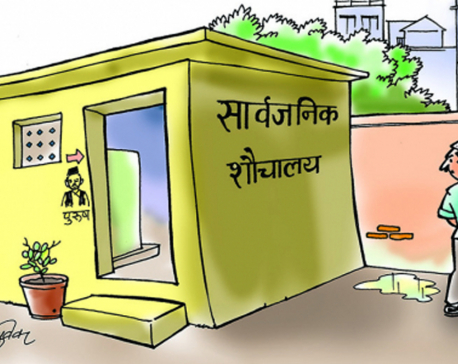
Where people sell grass to pay for toilet
NEPALGUNJ, Dec 13: There are 24 houses in a row at Ghasiyaran Tole of Nepalgunj Sub-Metropolitan City. The settlement has... Read More...
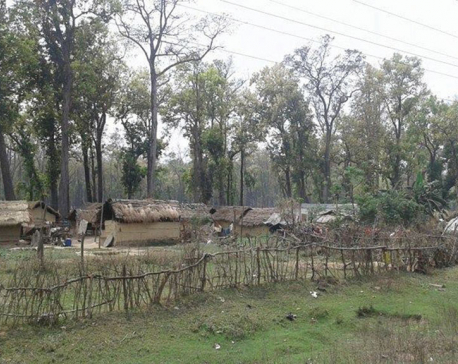
Badis turning to Christianity to ‘overcome poverty, caste discrimination’
TIKAPUR, May 15: Ramesh Badi of Lamkichuha Municipality – 3 was extremely worried about his son’s health. Doctors had declared that... Read More...
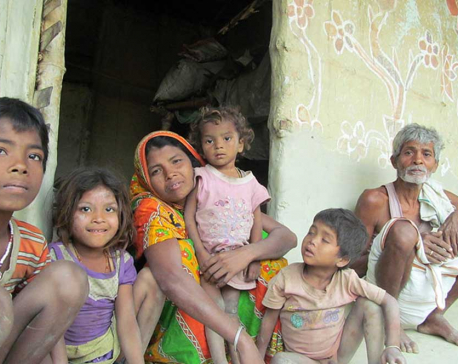
Bonded poverty in Tarai-Madhes
In Nepal’s remote outback, the rich loan-sharks force poor farmers and aspiring migrant workers to sign promissory notes, agreeing to... Read More...


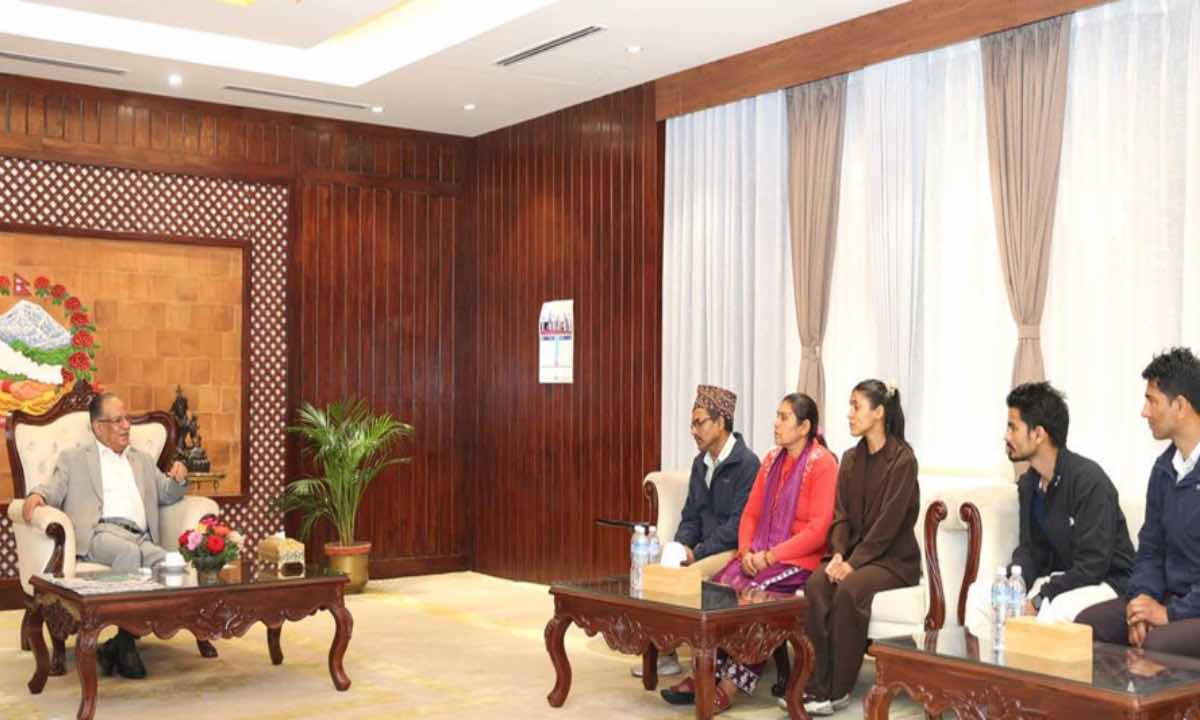

Just In
- Nepal face early setback as four wickets fall in powerplay against UAE
- Australian unemployment rate rises to 3.8 percent in March
- Gold price increases by Rs 700 per tola
- Fire destroys wheat crop in Kanchanpur, Kailali
- Bipin Joshi's family meets PM Dahal
- State Affairs and Good Governance Committee meeting today
- Gold items weighing over 1 kg found in Air India aircraft at TIA
- ACC Premier Cup semi-final: Nepal vs UAE











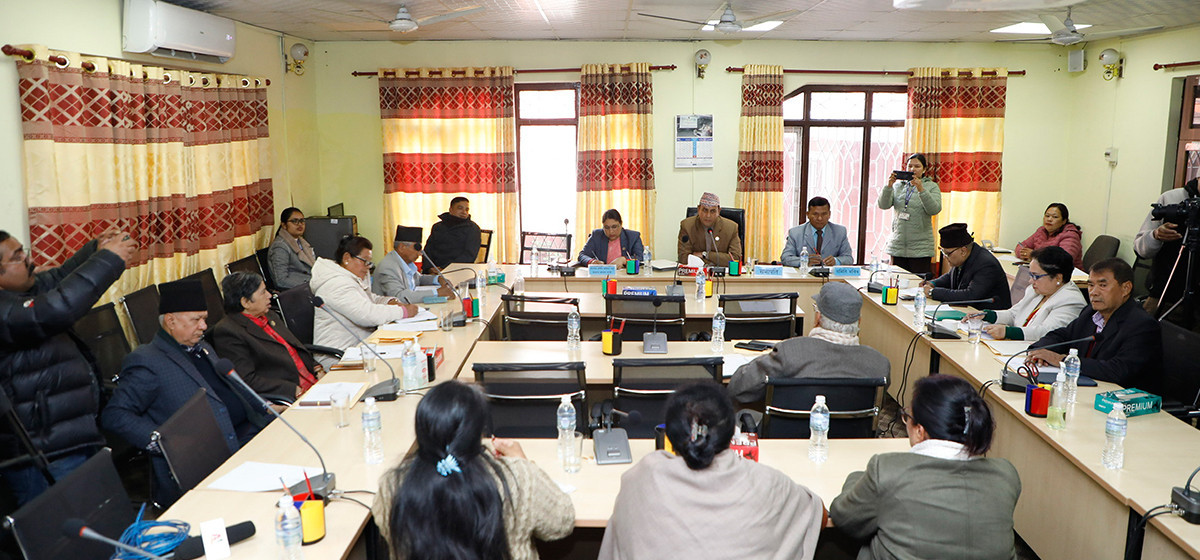

Leave A Comment